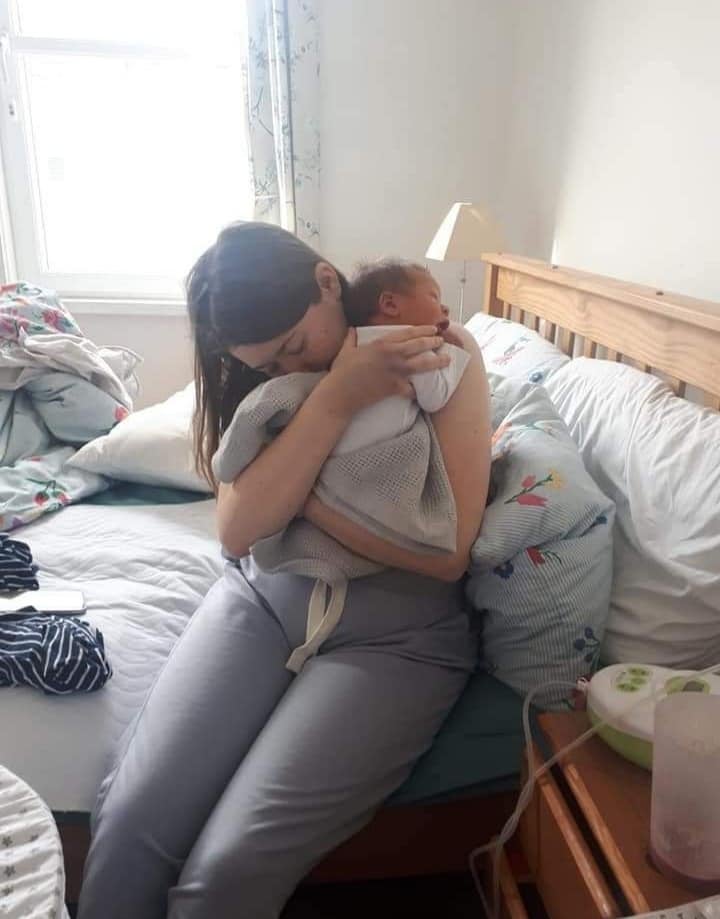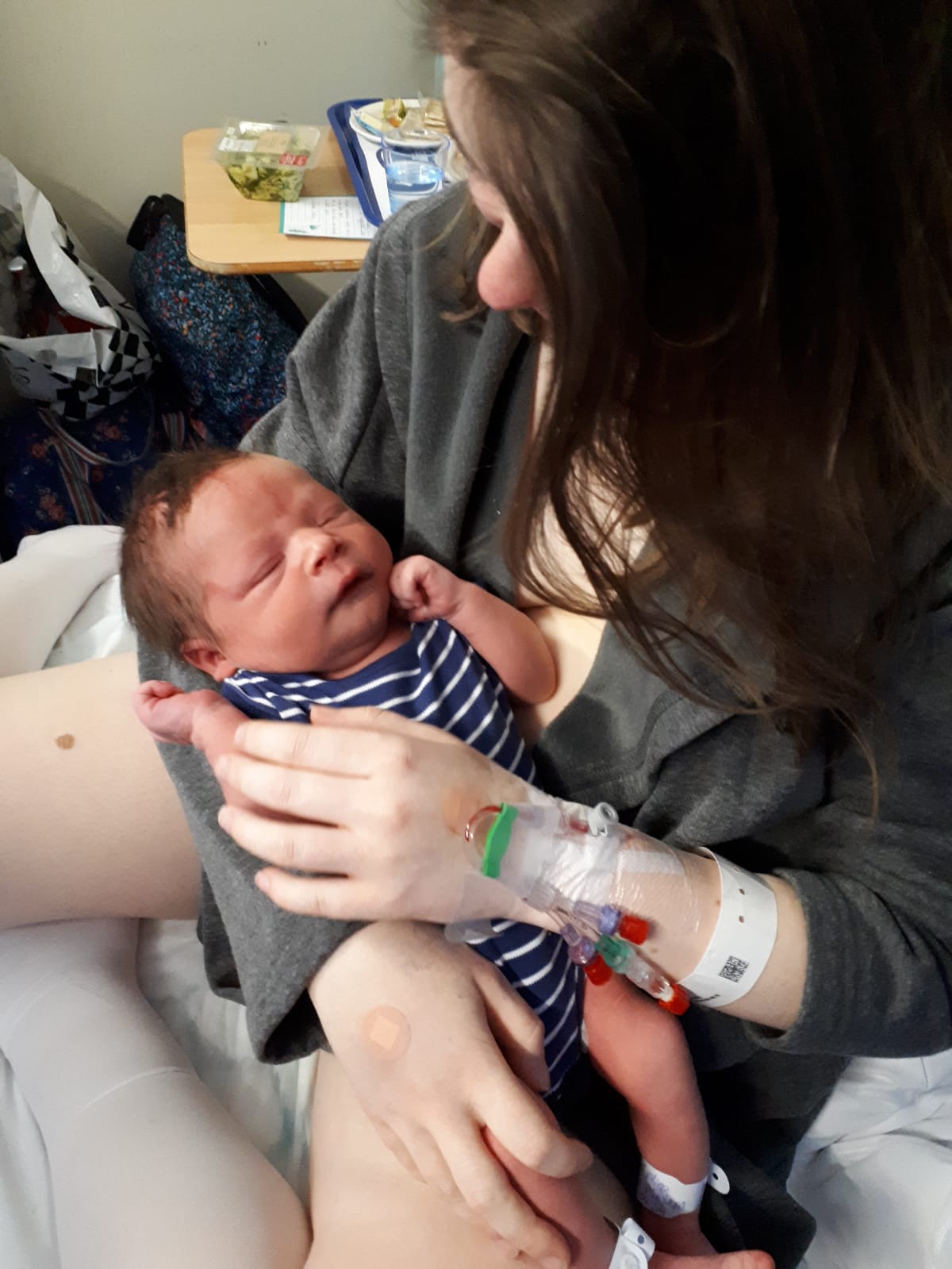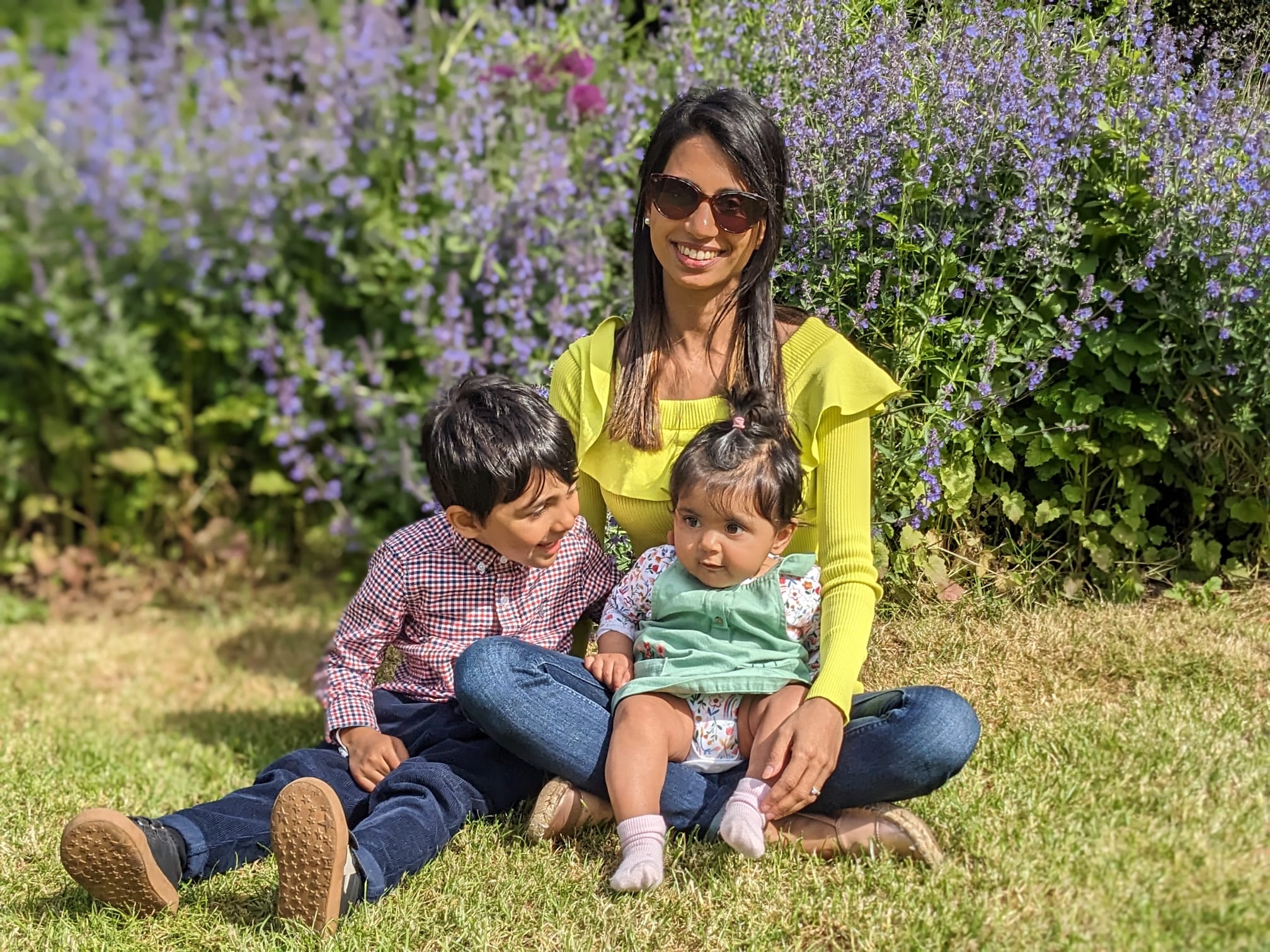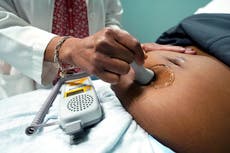‘I’ve never felt so helpless... That night was hell’: The women who endured traumatic childbirths
‘There were staff there but they just weren’t helping. I kept pressing the buzzer. I couldn’t move,’ one woman tells Maya Oppenheim


From being refused help at their most vulnerable, to their child being born unresponsive, women have spoken to The Independent about their traumatic experiences of childbirth.
It comes as new research found over half of women who had a traumatic experience of childbirth say the ordeal has put them off having more children. Mumsnet, who polled 1,000 of their members, discovered that 53 per cent of mothers who had a distressing birth say the trauma has deterred them from giving birth again.
Alice Ashburn said she obtained a long-term disability from her traumatic experience of childbirth which noticeably impacts her ability to walk.
The 30-year-old, who lives in Cornwall, explained she had one traumatic birth at Derriford Hospital in Plymouth in 2019 and then another in 2021.
Discussing her first birth, she explained she spent five days in labour where she was “in and out” of hospital.
The mother-of-two, who is a trained primary school teacher, added: “I kept asking if I could stay and they were saying no. It was a horrible experience. I was so scared.
“I ended up having a forceps delivery in theatre and I had a post-partum haemorrhage. My son was born non-responsive - they resuscitated him. He bounced back but it was a very scary experience.
“They put him on my chest, I couldn’t move my arms and he slid into my neck. They realised he wasn't responding.”
She said she felt “really terrified” as she explained she struggled to ask for help during the birth, adding: “I felt trapped. I just didn’t understand everything going on.”
She explained her second birth was traumatic due to feeling like she was not supported by healthcare professionals.
“I laboured at home for 36 hours,” Ms Ashburn added. “They definitely rushed me to give birth even though my observations were good - I am assuming that was partially a lack of staff. This was during covid - everywhere was stretched, I get that.”
She was transferred from her home birth to the hospital where she had a caesarean around three hours after her arrival, she recalled, adding she was forced to push while waiting for the procedure despite telling them she could no longer do so and needed help.
“I felt completely blank when I got to the hospital,” she added. “I had nothing left at all. I was a shell of a person. I didn’t want to go to the hospital.”

She explained she was diagnosed with birth trauma related post traumatic stress disorder (PTSD) after the first birth.
“It put me off giving birth again and wanting to have any contact with the NHS again,” Ms Ashburn said. “I had a lot of private therapy between the boys with PTSD birth trauma specialists”.
She said she requested mental health support "before, during and after labour " but "was told they did not have capacity to support" her, adding: "This made me feel like I didn’t matter".
Ms Ashburn added: “I have nerve damage from my C-section which affects my gait and my walking. I am not registered as disabled. I walk very slowly, it is noticeable to others.”
Neya Joshi, who lives in Croydon, said she had a distressing experience of childbirth at Croydon University Hospital during the covid crisis in May 2020.
The 32-year-old, who has two children, added: “I was induced with my son but his heart rate kept dropping so I had to have an emergency C-section but really where things went downhill for me was the aftercare.
“I was basically left on my own with my baby on the postnatal ward from about 8am in the morning until 3pm the next day.
“There were staff there but they just weren’t helping. I kept pressing the buzzer. I couldn’t move - numb from the waist down because of the epidural and C-section. I was in severe pain.

Ms Joshi, who has also been diagnosed with birth trauma-related PTSD, explained her baby was crying in the cot next to her but she was unable to pick him up or comfort him as she could not move.
“I asked for help from a member of staff, I said ‘My baby is crying, I can’t reach him, I don’t how to comfort him’. I was attached to a drip so one of my arms was out of use,” Ms Joshi recalled.
“I was in such a vulnerable state. The member of staff smirked at me and she said ‘How old are you? You have had a baby, you’ve got to figure it out on your own’ and walked off. I was really shocked - I burst into tears.”
The mother-of-two, who works as a medical copywriter, explained her husband was not allowed in the hospital with her due to Covid rules.
“I’ve never felt so desperate and helpless in my entire life,” she added. “That night was hell."
A spokesperson for Croydon Health Services NHS Trust told The Independent they were “sorry” their “care did not meet the high standards we expect and we have written to Ms Joshi to offer our sincere apologies”.
The representative said “as a result of Ms Joshi’s experience, we have increased the number of regular ward rounds, with more staff to deliver one-to-one care during labour,” as they they noted their maternity unit “was recently rated as “Good” by the Care Quality Commission for being safe and well-led”.
While a spokesperson for University Hospitals Plymouth NHS Trust said they “are unable to comment on individual cases” but “are concerned to hear that Ms Ashburn was unhappy with the care she received while giving birth”.
The representative added: “We would invite Ms Ashburn to contact us so we can discuss her concerns and provide any necessary support.”
Join our commenting forum
Join thought-provoking conversations, follow other Independent readers and see their replies
Comments





Bookmark popover
Removed from bookmarks